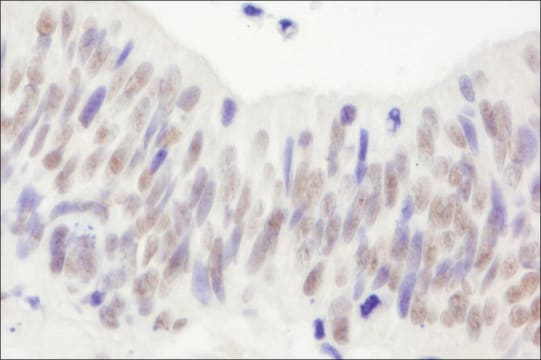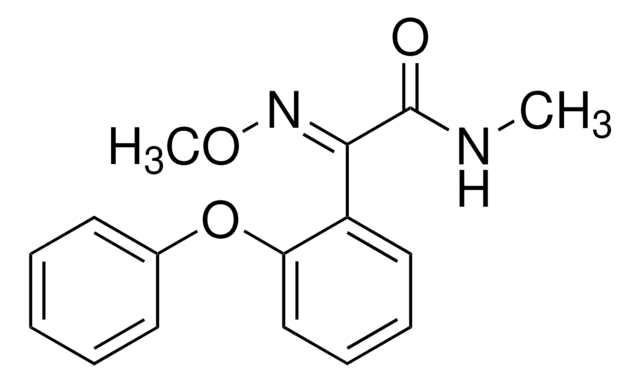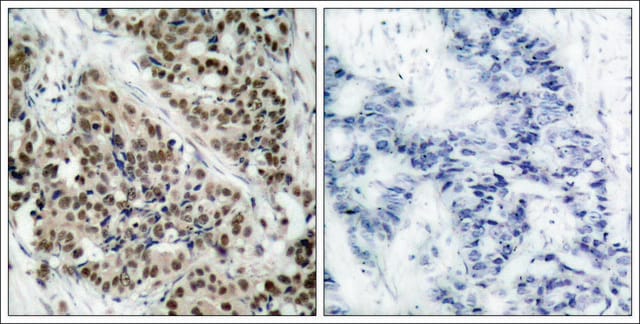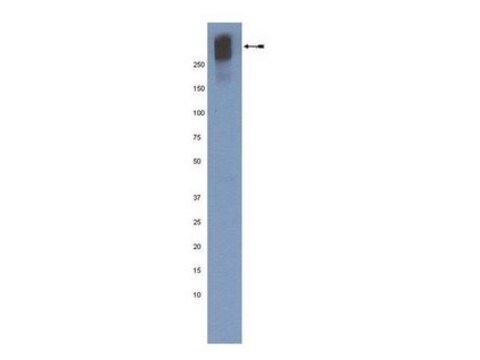MABE1878
Anti-CNOT6 Antibody, clone Y6206
About This Item
Empfohlene Produkte
Biologische Quelle
mouse
Qualitätsniveau
Konjugat
unconjugated
Antikörperform
purified antibody
Antikörper-Produkttyp
primary antibodies, primary antibodies
Klon
Y6206, monoclonal
Mol-Gew.
calculated mol wt 63.3 kDa
observed mol wt ~62 kDa
Aufgereinigt durch
using protein G
Speziesreaktivität
mouse, human
Verpackung
antibody small pack of 100 μg
Methode(n)
western blot: suitable
Isotyp
IgG2bκ
Epitopsequenz
N-terminal half
Protein-ID-Hinterlegungsnummer
UniProt-Hinterlegungsnummer
Versandbedingung
ambient
Posttranslationale Modifikation Target
unmodified
Angaben zum Gen
human ... Cnot6(57472)
Allgemeine Beschreibung
Spezifität
Immunogen
Anwendung
Evaluated by Western Blotting in HepG2 cell lysate.
Western Blotting Analysis: A 1:1,000 dilution of this antibody detected CNOT6 in HepG2 cell lysate.
Tested Applications
Western Blotting Analysis: A 1:1,000 dilution from a representative lot detected CNOT6 in lysates from Mouse embryonic stem cells and DLD-1 cells.
Western Blotting Analysis: A representative lot detected CNOT6 in Western Blotting applications (Ito-Kureha, T., et al. (2020). Nat Commun.11(1):6169; Otsuka, H., et al. (2020). Biochimie.;174:49-56; Mostafa, D., et al. (2020). RNA Biol.;17(3):403-416; Zukeran, A., et al. (2016). Biochem Biophys Res Commun. 474(2):233-239; Takahashi, A., et al. (2015). Cell Rep. 13(12):2756-67).
Note: Actual optimal working dilutions must be determined by end user as specimens, and experimental conditions may vary with the end user
Physikalische Form
Lagerung und Haltbarkeit
Sonstige Hinweise
Haftungsausschluss
Lagerklassenschlüssel
12 - Non Combustible Liquids
WGK
WGK 1
Flammpunkt (°F)
Not applicable
Flammpunkt (°C)
Not applicable
Analysenzertifikate (COA)
Suchen Sie nach Analysenzertifikate (COA), indem Sie die Lot-/Chargennummer des Produkts eingeben. Lot- und Chargennummern sind auf dem Produktetikett hinter den Wörtern ‘Lot’ oder ‘Batch’ (Lot oder Charge) zu finden.
Besitzen Sie dieses Produkt bereits?
In der Dokumentenbibliothek finden Sie die Dokumentation zu den Produkten, die Sie kürzlich erworben haben.
Unser Team von Wissenschaftlern verfügt über Erfahrung in allen Forschungsbereichen einschließlich Life Science, Materialwissenschaften, chemischer Synthese, Chromatographie, Analytik und vielen mehr..
Setzen Sie sich mit dem technischen Dienst in Verbindung.








